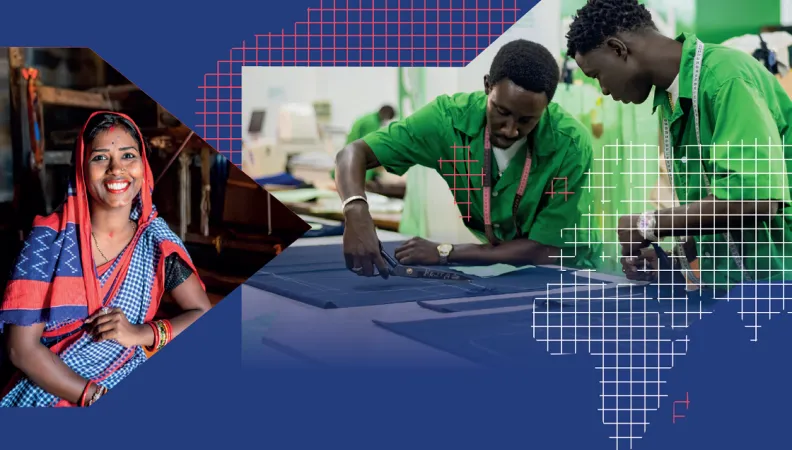Share the page
Acting together for greater impact: Proparco's new strategy
Published on

In response to the numerous challenges currently confronting the planet – economic and geopolitical crises, climate emergency, growing inequalities – Proparco is adopting Strategy 2023-2027. This five-year roadmap is structured around three strategic objectives and differentiated operational approaches and is underpinned by impact-based objectives for a more just and sustainable world. Analysis.
In the past few years, our world has been profoundly impacted by crises of major proportions and by increasing inequality. Fifteen million deaths have been directly or indirectly ascribed to the Covid-19 pandemic, which reversed more than four years of progress in eradicating poverty. Economic recovery remains fragile and uneven as poverty continues to increase. Moreover, two billion people live in countries directly affected by conflict.
Without strong concerted action, these crises will only increase in scale and deteriorate as current production and consumption patterns are no longer sustainable given their harmful impacts on the climate and on biodiversity.
“The climate emergency and growing inequalities are even more acute at present. The role of the private sector is more important than ever. It is actually an essential lever for achieving the Sustainable Development Goals”, explains Françoise Lombard, Chief Executive Officer of Proparco.
This is the essence of Proparco’s strategic vision for the next five years: Acting together for greater impact.
|
_
INTERVIEW “To respond to contemporary emergencies and also to keep our long-term action on track, Proparco has adopted a new strategy.” Françoise Lombard, Chief Executive Officer of Proparco _ |
Press release
3 strategic objectives for greater impact
To maximise the impact of its investments, Proparco has chosen to focus on three clear strategic objectives to structure its action over the 2023-2027 period.
- Acting for a more sustainable and resilient economy
Both on the African continent and in the most vulnerable regions, Proparco is stepping up its support for MSMEs, local financial systems and physical infrastructures and it is partnering the development of local production and processing facilities.
- Acting for our planet
In all geographies, Proparco is targeting investments with the greatest impact on climate change mitigation and adaptation and on protecting biodiversity.
- Acting for greater equality
In all geographies, Proparco is focusing its action on reducing gender, socio-economic and territorial inequalities.
3 differentiated operational approaches to tackle the diverse needs of our clients
To factor in the complexity and different realities on the ground in its different geographies, and to adapt its solutions to client needs, Proparco has decided to differentiate its approaches.
- Enabling
Proparco will finance innovation, test new business models, help restructure different sectors and make a more meaningful contribution in fragile environments where financing solutions are more limited.
- Strengthening
To enhance impacts and make these the key focus of its project selection process, Proparco will provide clients with technical assistance on a more systematic basis and help partners build capacity to deal with social, environmental and governance issues.
- Amplifying
To go further in the client relationship, Proparco will provide customised support as part of a shared vision that maximises impacts in the interests of sustainable and inclusive growth.
Lastly, Proparco has devised a cross-functional approach aimed at mobilising more private funding towards achieving the Sustainable Development Goals: through greater use of risk sharing and blending arrangements, structuring and financial innovation support, and by harnessing an Anchor investor role.
Using impacts to measure performance
Striving for impact is the key focus of Proparco’s new Strategy 2023-2027:
- By growing the assistance offering
Impacts will be identified and analysed beginning in the project vetting phase with Proparco’s partners while a more extensive and longer-term technical assistance offering will be introduced.
- By strengthening our measurement and analytical resources
Impact measurement will be reinforced using a sustainable development rating as well as expected impact assessment and monitoring of actual impacts.
